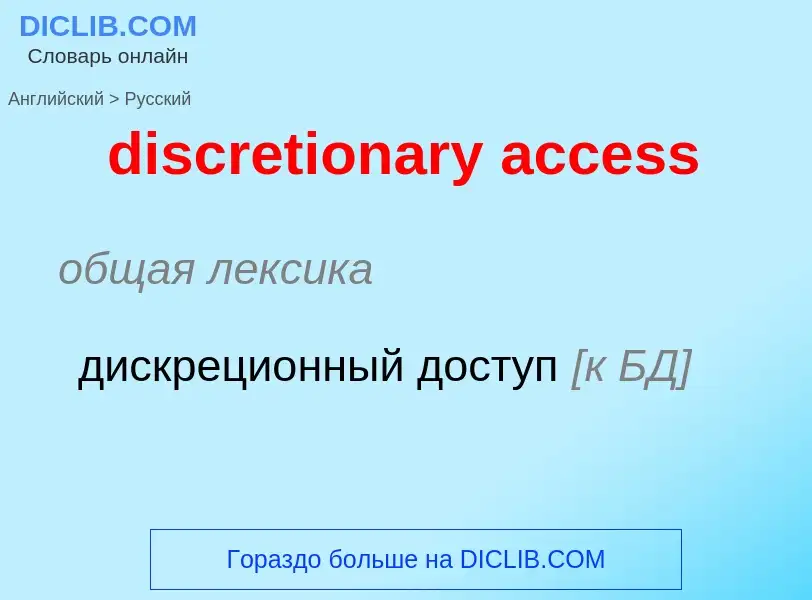Перевод и анализ слов искусственным интеллектом ChatGPT
На этой странице Вы можете получить подробный анализ слова или словосочетания, произведенный с помощью лучшей на сегодняшний день технологии искусственного интеллекта:
- как употребляется слово
- частота употребления
- используется оно чаще в устной или письменной речи
- варианты перевода слова
- примеры употребления (несколько фраз с переводом)
- этимология
discretionary access - перевод на русский
общая лексика
дискреционный доступ [к БД]
общая лексика
файл базы данных в СУБД Access
общая лексика
прямой [произвольный] доступ
способ организации доступа к устройству памяти, при котором для чтения/записи произвольного блока данных не требуется последовательный просмотр блоков, начиная с самого первого, например ОЗУ, диски
произвольный порядок обращения
синоним
общая лексика
коллективный доступ
Определение
Википедия
In computer security, discretionary access control (DAC) is a type of access control defined by the Trusted Computer System Evaluation Criteria (TCSEC) as a means of restricting access to objects based on the identity of subjects and/or groups to which they belong. The controls are discretionary in the sense that a subject with a certain access permission is capable of passing that permission (perhaps indirectly) on to any other subject (unless restrained by mandatory access control).
Discretionary access control is commonly discussed in contrast to mandatory access control (MAC). Occasionally, a system as a whole is said to have "discretionary" or "purely discretionary" access control when that system lacks mandatory access control. On the other hand, systems can implement both MAC and DAC simultaneously, where DAC refers to one category of access controls that subjects can transfer among each other, and MAC refers to a second category of access controls that imposes constraints upon the first.

